Finley has grown comfortable with his role as spokesperson for gardening as a solution to food apartheid.

Finley has grown comfortable with his role as spokesperson for gardening as a solution to food apartheid.
January 9, 2024
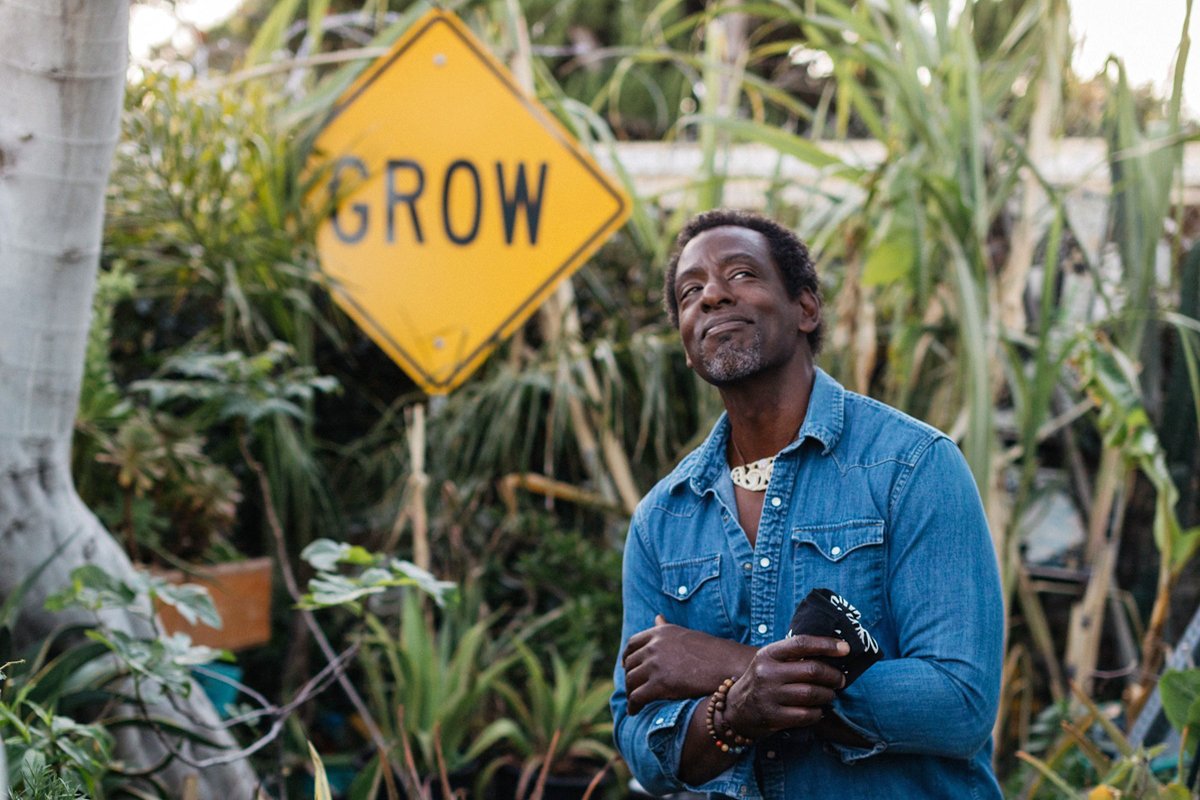
Ron Finley (Photo credit: Kat Hanegraaf)
It has been 10 years since Ron Finley, the “Gangsta Gardener,” changed the trajectory of his life with a TED Talk about food apartheid in his community, South Central Los Angeles. The talk has been viewed nearly 5 million times since then, and one of its most memorable lines—“Growing your own food is like printing your own money”—has since become the seed of Finley’s burgeoning philanthropic work.
Finley has become famous for planting avocados, bananas, mangoes, and sugar cane in and behind his house in a spot where there was once an Olympic-sized swimming pool and making it available to community members in exchange for small donations.
“This all started because I needed some healthy food.”
He organized against regulation that prevented Angelenos from curbside gardening, and went on to launch a nonprofit, the Ron Finley Project. And yet he says he’s still amazed by the impact of the TED Talk and the number of doors it has opened for him and his work.
In recent years, Finley has become one of the most popular teachers in the online education series MasterClass, and he has been invited to speak in a wide range of far-flung places including Greece, Sweden, and Denmark. And in 2024, Finley and his staff will curate an art show called “Breath(e): Toward Climate and Social Justice” at The Hammer Museum in Los Angeles.
“Who could plan it? Because I planted some food, I get to speak at Sheffield University in London,” Finley told Civil Eats. “The audience is not comprised of academics, so I bring this down so that everybody will understand. [People] don’t understand how big a compliment it is to me when I get told that me being real is what resonates.”
In late 2022, Finley collaborated with the national advertising company BBDO on a short promotional film, “Plant Some Money,” about gardening as a solution to food apartheid. The film, which was awarded a Bronze Lion award at the 2023 Cannes Lions International Festival of Creativity, captured a day when Finley and dozens of advocates marched three miles from the Anacostia Park to the National Mall in Washington, D.C. The distance marks the average stretch that those living in economically marginalized U.S. communities must travel to access fresh produce.
Following the march, Finley planting seeds attached to paper “money” printed especially for the event outside of the Federal Reserve. The bills had the Gangsta Gardener’s face on them and included the total value of the produce that could be grown with the seeds: $20 worth of rainbow carrots, $25 of arugula, $100 of collard greens, and $150 of cherry tomatoes.
In addition to the march and the short film, the Ron Finley Project has been offering folks who live in food deserts a chance to sign up for a free starter gardener kit that includes the bills with seeds attached and instructions on how to plant them. Since March 2023, the campaign has distributed more than 2,000 bills around the U.S. and beyond. And while it’s hard to say how many of those seeds were planted, the Ron Finley Project estimates the produce that they yielded could add up to $290,000 saved on produce.
“We hope that the people struggling to have access to fresh produce across the country can get inspired by Ron and start growing their own food not only as a means of sustenance but also as a form of protest against a system that perpetuates food inequality,” added Rafael Gonzaga, BBDO LA’s executive creative director.
While seated on a bench inside his Los Angeles farm, Finley reflected recently on his journey with a combination of swagger and humility.
Finley, a father of three, grew up in South Central and has worked as a fashion designer on and off for years. According to Vogue, he designed clothes for Will Smith, among other L.A. celebrities and launched a brand of his own in the early 2000s. But he turned to gardening when his career hit a rocky period. “This all started because I needed some healthy food,” he said.
Now, educators often turn to Finley for inspiration. Take Hailey Wolfe, a kindergarten teacher at Vollentine Optional Elementary School, in North Memphis, Tennessee. The school is the alma mater of rapper Juicy J and not known for its test scores or affluence. In the last year, however, Wolfe and her class have garnered statewide attention for an urban gardening-focused curriculum that she developed based on Finley’s work and introduced to her class during Black History Month.
“The goal was to teach a lesson on plants and animals—super redundant and boring,” Wolfe said. “I wanted to find a newer, relevant person who was changing the world of gardening. Our art teacher told me about Ron, and I reached out [on social media]. He was ready to help.”
Wolfe began learning about Finley’s gospel on gardening over the phone. Then he made appearances in her classroom virtually and his team sent seeds to her classroom.
“If you’re living in a food desert, you just have the corner store,” Wolfe said. “I would have to tell them [to eat] just one bag of Takis, not two. But once they started learning about Ron, they were excited about growing arugula, tomatoes, and kale. The parents even started wanting their own plants and my fruit salad recipe. . . . The main thing we’ve learned from Ron is that you don’t have to be a gardener. You can just [focus on accessing nutritious food] for your community and for yourself.”
Self-reliance is a key part of what Finley seeks to impart. He has often set his own rules and brings a sense of optimism to everything he does. Training children to see themselves and the world differently is an essential part of that work.
“What if we train kids in elementary school to have worm farms, rake Mrs. Johnson’s leaves, and then turn them into compost to sell back to her?” he proposed. “The lessons are about making sure kids know there are resources all around them. And they’d be getting paid—that’s the sexy part. We’d be training Earth warriors, and they wouldn’t even know it.”
Wolfe’s “Earth warriors” are growing in number, since she was recently hired on by a Tennessee-based health system to teach some of the Finley curriculum to a wider audience.
Back in Los Angeles, Finley admits he isn’t your typical gangster. He neither drinks alcohol nor consumes drugs, despite the moniker. (Last summer, he served as a 1% Percent for the Planet partner for the non-alcoholic beverage brand, Seedlip.) The bulk of the funding for his nonprofit comes from his speaking engagements at conferences and other events. In those settings, he said, he often draws the connection between fresh fruits and vegetables and chronic illness.
“In every room where I speak, I ask people to raise a hand if they knew someone who died of diabetes or cancer,” he said. “Pretty much everyone raises their hand—we’re talking 600, 700, 1,000 people. That brings me to tears almost every time. These are curable diseases. One tiny ass seed has a force in it to change that.”
Finley also shares his urban gardening lessons with whomever will listen. For instance, the Today Show’s Al Roker recently built a raised garden bed while getting step-by-step instructions from Finley. But Finley doesn’t keep track of the number of people who come to the garden to pick whatever produce their hearts desire. He said he created the garden with abundance in mind, not limitations.
“People come and don’t want to leave,” he said. On hot summer days, he added, “they notice that the temperature drops around this part of the parkway, they notice the colors and they smell the difference. . . . One kid started saying, ‘That’s my jungle.’”
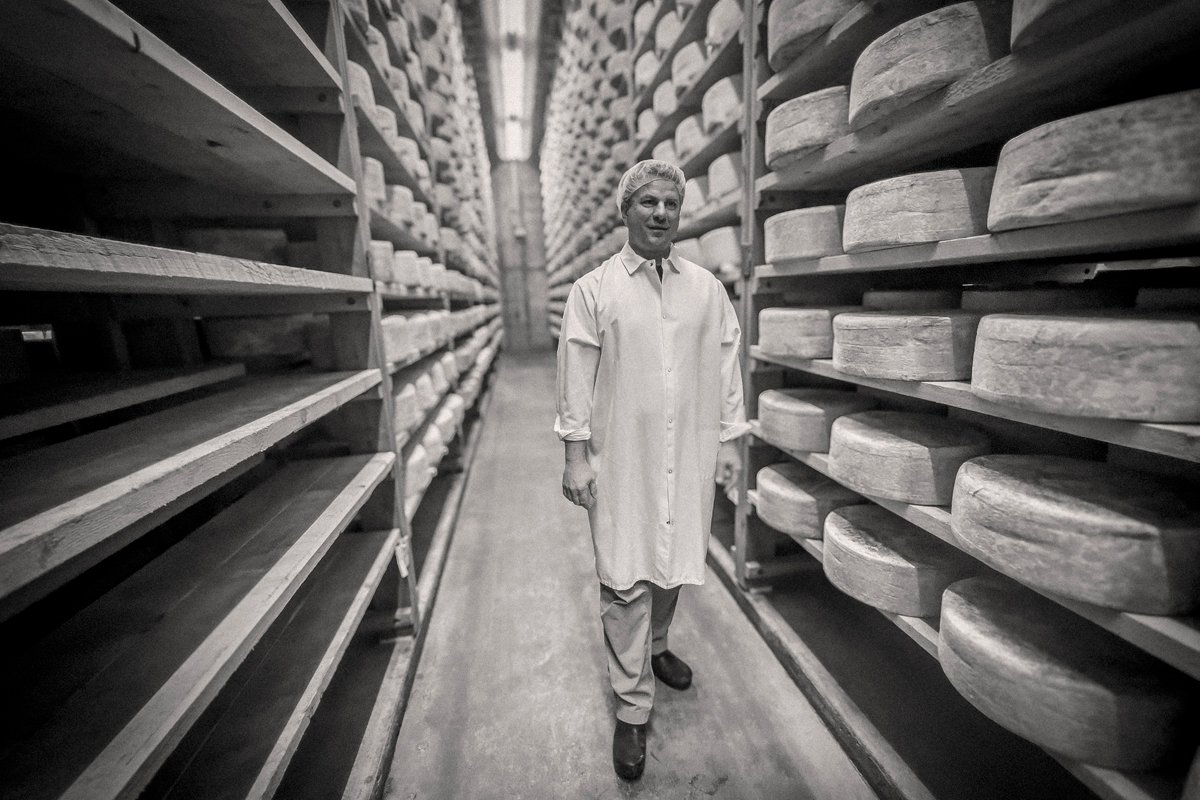
September 4, 2024
By paying top dollar for milk and sourcing within 15 miles of its creamery, Jasper Hill supports an entire community.
September 3, 2024
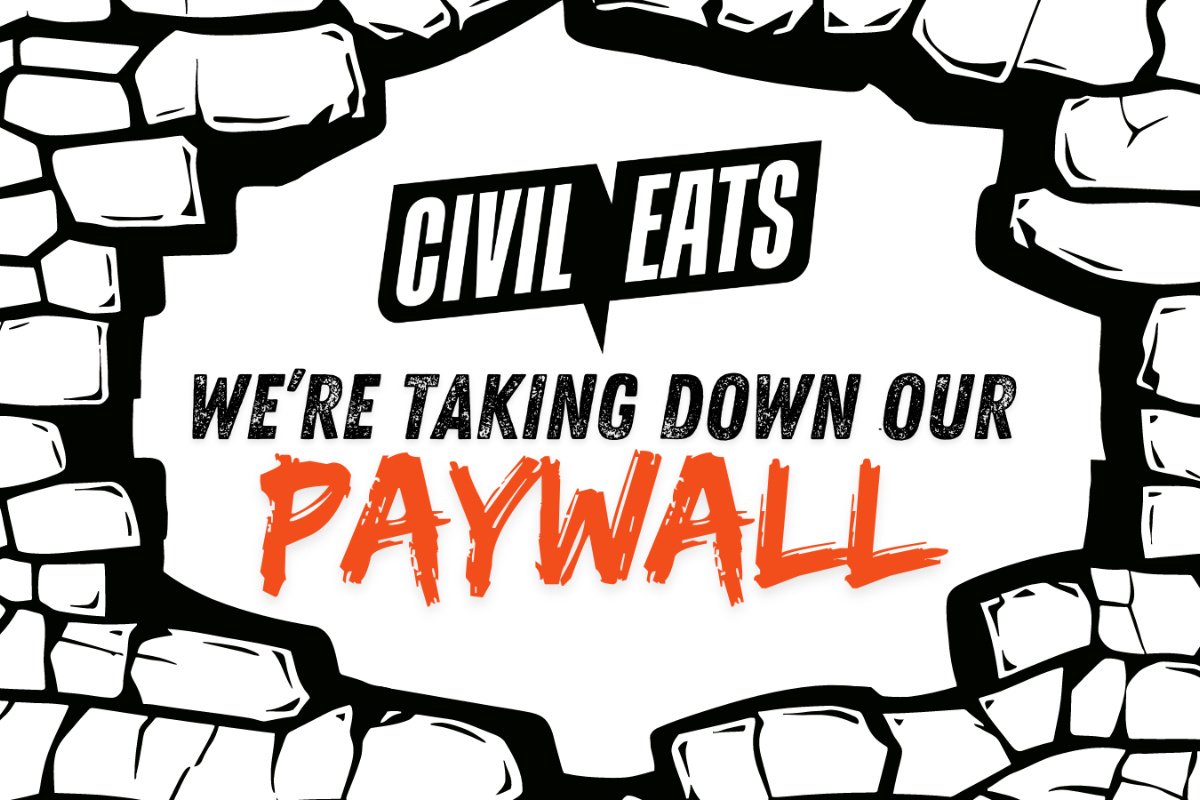
August 27, 2024

August 26, 2024
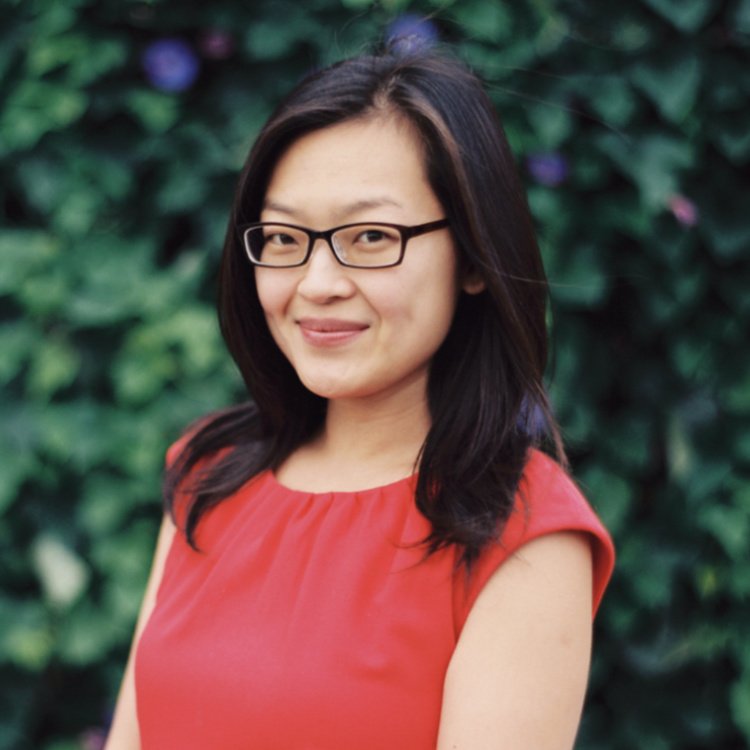
August 13, 2024
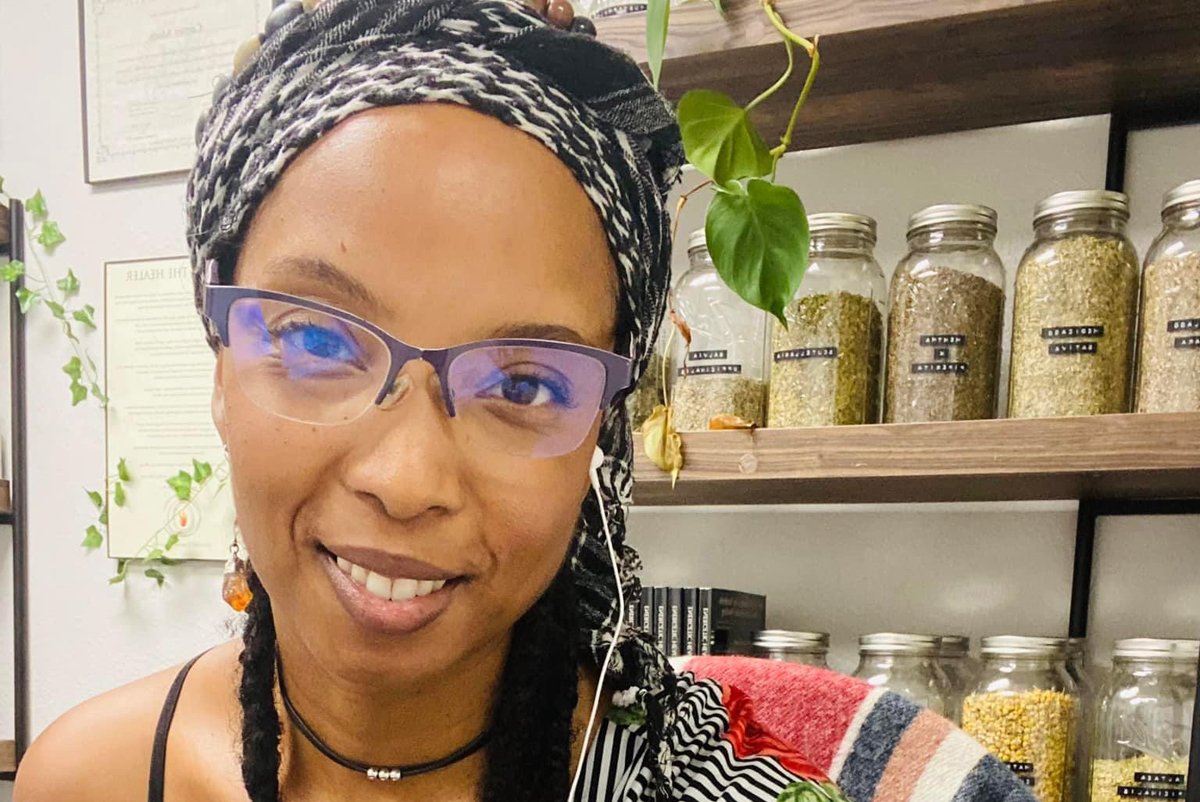
Like the story?
Join the conversation.